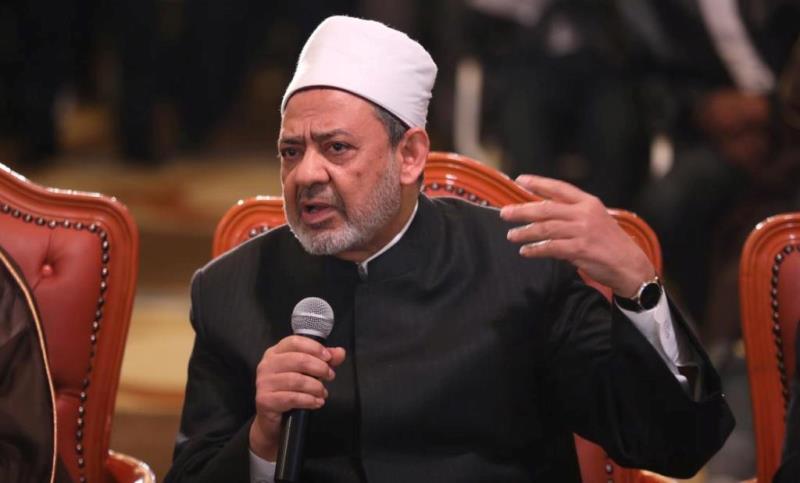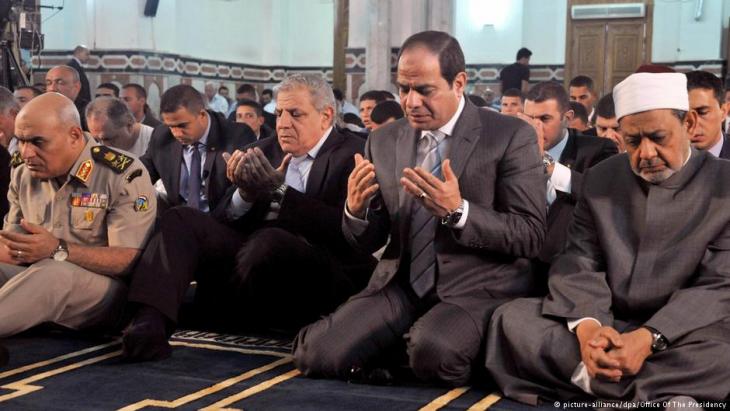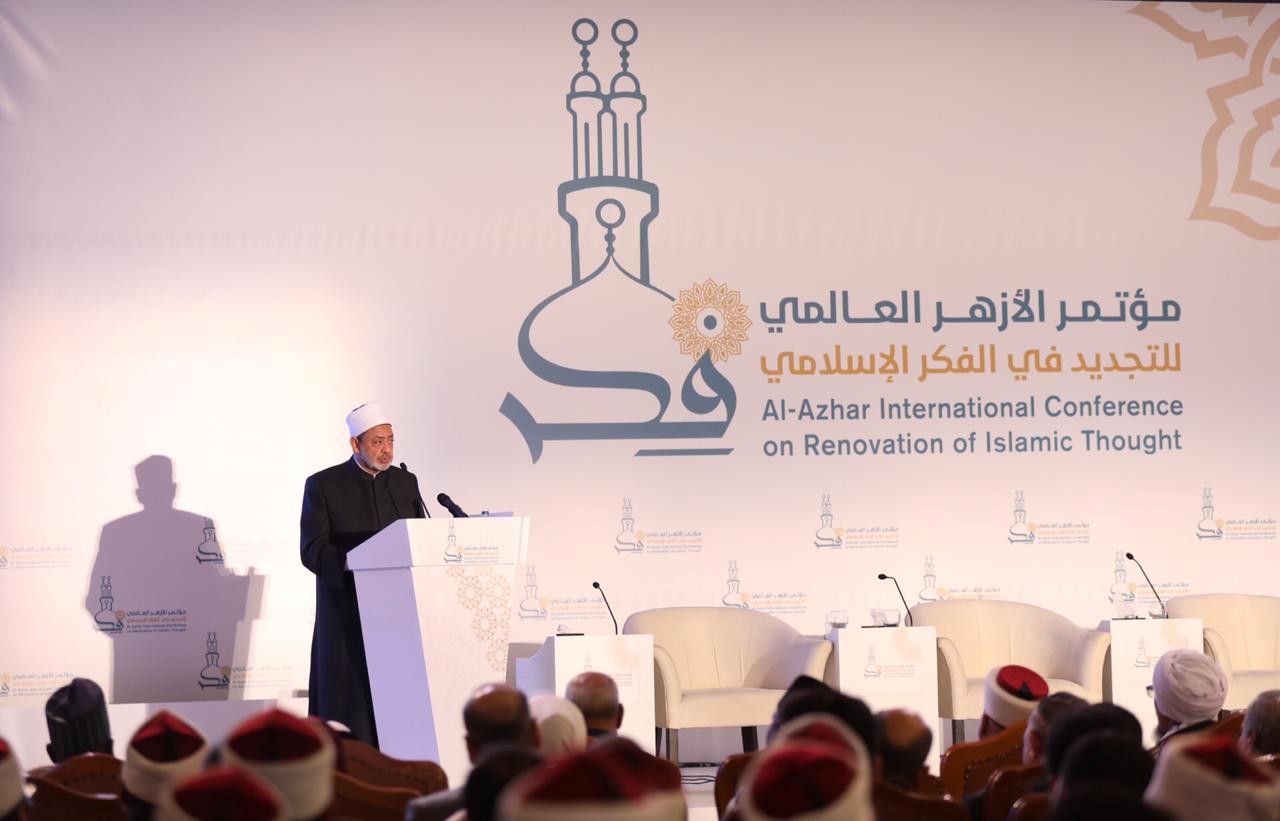Egypt’s eternal conundrum – reforming religious thought

At the end of January this year, Egypt’s Al-Azhar University, one of the foremost seats of traditional Islamic learning in the world, hosted an international conference on the "Renovation of Islamic thought", a subject the country’s authoritarian president Abdul Fattah al-Sisi has been bandying about as an antidote to the spread of political Islam since 2015.
But the two-day conference, attended by delegates and scholars from 46 countries, ended in fiasco, heavy on vitriol and light on substance, with two prominent scholars locking horns with each other over the modes, methods and the very purpose of reform.
Al-Azhar’s Grand Imam Ahmed al-Tayeb, a loyal acolyte of the establishment since the Mubarak era, as well as a staunch opponent of political Islam, rebuked Cairo University President Mohamed al-Khosht’s proposition to develop a new breed of religious thought unmoored from Islamic heritage and traditional scholarship.
A veiled attack on President Sisi
To the rapturous applause of a packed audience composed of his disciples and senior scholars in the university, Tayeb railed against Khosht’s "recklessness" and called for "a renewal that benefits from the treasures of this religion and uses them as a guiding force for the future."
The rebuke Tayeb delivered to Khosht, who is believed to be very close to Sisi, was widely interpreted as a veiled attack directed at the president himself, who has consolidated his hold over the Egyptian state and society – its media, educational and cultural institutions – and is looking to control religious debate in the country.
The January conference and the widespread discussions in the media it continues to generate has brought to fore the growing distrust between the former partners that has been simmering for the past five years.
Al-Azhar, which staunchly allied itself to Sisi during his 2013 coup against Egypt’s first democratically elected president, is now eyeing the president’s "reformation of religious discourse" with suspicion, interpreting it as a pretext to bring the seminary-university under his absolute control.
Since Al-Azhar is a widely venerated moderate institution in Egypt and across the Muslim world, the regime and its institutions initially chose subtler means in their attempts to subordinate its clerics. But the conflict has been in the spotlight on numerous occasions, with Sisi accusing the university of spreading extremism and misinterpreting the fundamentals of Islam. He once went so far as to say that he was fed up with Tayeb. The government has even prohibited the publishing of official Al-Azhar statements.
You may also like:
Interview with the Islamic scholar Ebrahim Moosa – The reinvention of Islam
Interview with pioneering Islamic thinker Fehmi Jadaane –What is the essence of Islam, and does it need reforming?Al-Azhar and Egypt’s legacy of reforms
Yet the debate over the reform of Islamic thought is nothing new in Egypt. The last 150 years saw Egypt give birth to a wide assortment of influential as well as controversial Muslim reformers, ranging from modernists Muhammad Abduh and Mahmoud Shaltut (himself a Grand Imam of al-Azhar during the Nasser years) through revivalists such as Hassan Al-Banna and Sayyid Qutub to iconoclasts such as Muhammad Tawfiq Sidqi and Nasr Hamid Abu Zayd.
Throughout its chequered history, however, Al-Azhar has remained relatively resistant to calls for reform. It is often blamed for having towed the official line and allied itself with the powers that be. Established as a mosque in the 10th century during the Fatimid Caliphate by the Ismaili Shia dynasty, Al-Azhar was later converted into a Sunni madrassa under the Ayyubid dynasty founded by Saladin.
Dictators in Egypt have tried from time to time to clip the wings of Al-Azhar or misuse its clout to obtain religious sanction for their stance on many disputed issues. In the 20th century, the country’s topmost religious seminary sought to stay away from much of the reformist and the revivalist whirlwind that influenced Islamic debate in Egypt and across the Muslim world.

Some serious measures during the British occupation initiated by Abduh, himself a disgruntled student at Al-Azhar, and later by Shaltut in the late 1950s, drew criticism from conservative elements within the university.
After the 1952 revolution that overthrew the monarchy, Al-Azhar became a tool in the hands of the generals who ruled the country. The pattern continued in 2013, when al-Sisi ousted Mohamed Morsi's short-lived democratically elected government through a coup.
Sisi’s political motivation
However, the current reform initiative peddled by the authoritarian president and trumpeted by Egypt's predominantly state-controlled media since 2015 is more politically motivated than ideologically driven. It is widely held that Sisi’s efforts to bend Al-Azhar to his will have been backed by his Gulf allies, who aided and abetted his coup in 2013 and see religious reform as a repressive tool to counter perceived security threats and extremism.
Sisi’s assumed reformer's hat has much in common with that of Saudi Arabia’s Mohammed bin Salman, who has brutally repressed and arrested numerous influential scholars and clerics for refusing to toe the official line. And Sisi’s campaign to purge the public institutions, media and intelligentsia of all Muslim Brotherhood elements is now being extended to a broader project to eliminate all potential threats, religious and otherwise, including Al-Azhar, the country’s citadel of orthodox Sunni learning. Al-Azhar, on the other hand, strongly denounces the arguments of its detractors that extremism derives from the traditional books of Islamic jurisprudence. The university also asserts that it has reviewed its curriculum and has implemented various corrective measures to reform religious discourse. In the concluding statement to the aforementioned conference, which was also published on the university’s social media pages, Grand Imam Ahmed al-Tayeb contended that while renewal (tajdid) was one of the essential requirements of Islamic sharia, the fundamentals of Islam were not subject to any sort of change.
While refuting all fundamentalist interpretations of Islam promoted by so-called Islamists and jihadists, he warned against entrusting the reform of religious debate to those who are not qualified to do so, since this could risk obliterating rather than reviving the religion.
You may also like: Anti-radicalisation strategies in Egypt – Sheikhs on the beat
Tayeb’s "coup" against Sisi
Tayeb’s rhetoric managed to prevail over Khosht inside the conference hall, which was predominantly packed with scholars of the Sunni and Sufi creed to which the former belongs, but the conference was followed by a widespread campaign unleashed by government-controlled media and official intelligentsia against Tayeb.
They described his speech as a coup against the president and have called for his dismissal and exclusion from public life. They have cast aspersions on his credentials as a moderate scholar, while some of them have even gone to the extent of labelling him a supporter of the Muslim Brotherhood, which he has never been.
In fact, it was his opposition to the Brotherhood, including his role in reducing their influence at his college, not to mention his membership of the then ruling National Democratic Party’s policy committee headed by Gamal Mubarak, that helped Tayeb to become Grand Imam of Al-Azhar in 2010.
He has always been a staunch regime loyalist. After the Arab Spring in 2011, which he later described as "part of a larger plot by the West to divide (Islamic) countries in a bid to re-colonise them", Tayeb issued edicts to give legitimacy to the counter-revolution against Mohamed Morsi, to Sisi’s coup, and even to some of the brutal crackdowns on the opponents of the coup.
However, by a curious twist of fate, Al-Azhar's endorsement of Sisi's coup and his persecution of Brotherhood protesters in 2013 are currently being used by the president’s supporters to question the religious legitimacy of the institution and its Grand Imam.
Moreover, Al-Azhar's own attempt to reinstate itself as both a popular religious institution and the guardian of Islamic tradition is currently being challenged by an apparent credibility deficit traceable to the biased, pro-regime stance it has adopted in the past.
Can reform stamp out extremism?
In many of his speeches, Sisi portrays the reformation of Islamic thought as a panacea to religious fundamentalism and the spectre of extremist ideologies in the country. Al-Azhar on the other hand contends that radical Islam has more to do with politics than traditional religious teaching.

According to a 2017 study by a Melbourne-based institute, as much as 95 percent of Egyptian youth who joined jihadist groups were inspired to do so by their political and social circumstances. The research confirms that the reform of religious discourse is not the right way to prevent young Muslims from joining jihadist groups in Egypt – or elsewhere.
People adopt jihadist ideas to bolster their violent aims and not the other way around. People who wish to join a jihadist movement will never consult Al-Azhar scholars, whom they consider a mouthpiece of the regime.
So how long can Al-Azhar University mount guard over orthodox Islamic learning, fending off Sisi’s attempt to assert control while also curtailing the influence of oil-rich Gulf states? It seems this clash of former allies is unlikely to conclude any time soon.
In a country like Egypt, where a majority of the believers subscribe to orthodox Sunni Islam – with its Sufi and Salafist creeds – any attempt to radically reform religious thought by denying the whole body of traditional Islamic scholarship that has evolved over centuries might well prove counter-productive.
Since damaging the credibility of a moderate institution like Al-Azhar could end up creating more breeding grounds for extremism, Sisi may well be forced to continue his tightrope act.
Muhammed Nafih Wafy
© Qantara.de 2020
